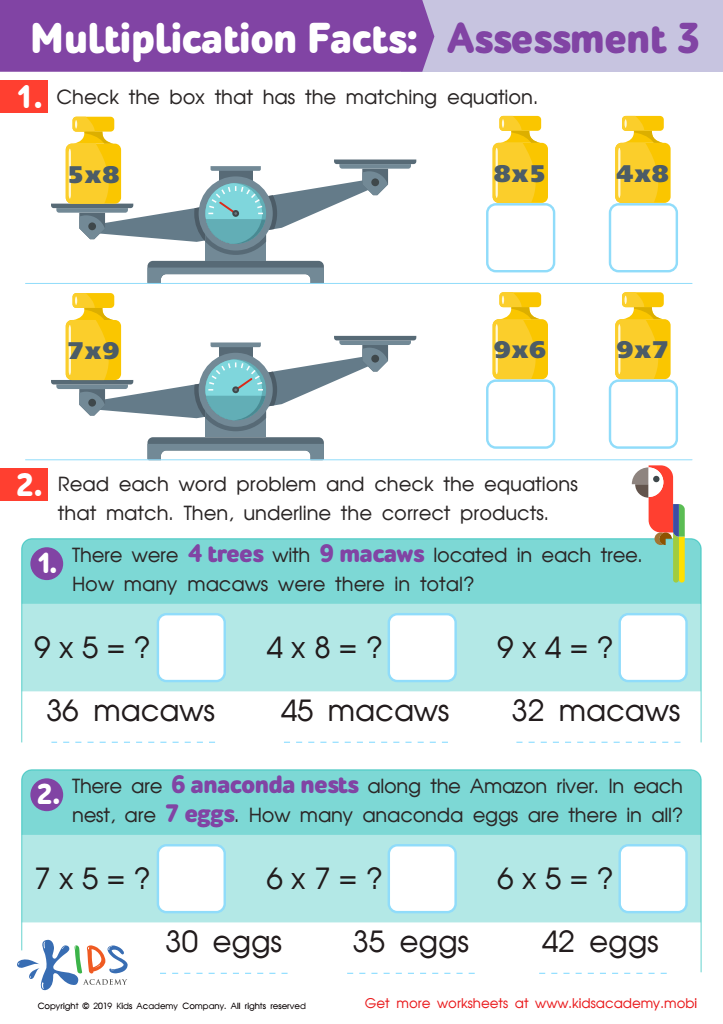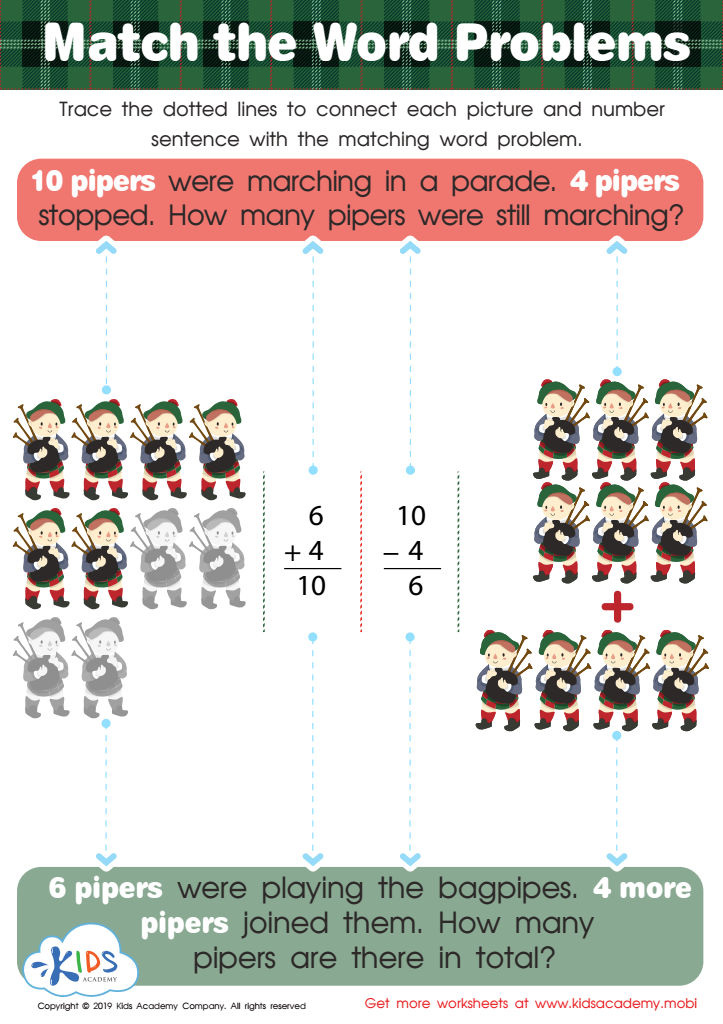Multiplication practice Normal Worksheets for Ages 3-4
3 filtered results
-
From - To
Introduce your little learners to the world of multiplication with our engaging worksheets designed specifically for ages 3-4. These practice sheets focus on basic multiplication concepts, tailored to the developmental stage of young children. Each brightly illustrated worksheet incorporates fun themes and straightforward problems to keep kids motivated and excited about learning. Perfect for classroom use or at-home practice, these worksheets help develop foundational math skills through hands-on, interactive activities. Give your child a head start in math with our thoughtfully crafted multiplication practice worksheets, ensuring their learning journey is both enjoyable and effective.


Multiplication Facts: Assessment 3 Worksheet


Enrichment -2 Step Word Problems Worksheet


Match the Word Problems Worksheet
Multiplication practice for children ages 3-4 might seem advanced, but it plays an essential role in building foundational math skills that benefit them in the long run. At this young age, children's brains are highly receptive, serving as a prime period for cognitive development and learning through play. Introducing basic multiplication concepts can enhance their number sense, a critical component of early math literacy.
Although detailing multiplication tables for preschoolers is premature, simple activities linked to grouping and counting can establish a groundwork for future understanding. By recognizing that multiplication is an extension of addition or counting—such as grouping objects—children begin to grasp basic mathematical relationships early on. This engagement fosters a positive attitude towards math, portraying it as part of everyday experiences rather than abstract rules.
For parents and teachers, emphasizing these activities enhances problem-solving skills and promotes critical thinking. Using age-appropriate methods, like counting blocks in groups or sharing toys equally, makes learning interactive and fun. Such early exposure boosts confidence, encourages curiosity, and lays a solid educational foundation. Ultimately, caring about these practices ensures that children grow into confident learners, better prepared for the structured math they'll encounter in formal schooling.

 Assign to My Students
Assign to My Students


















